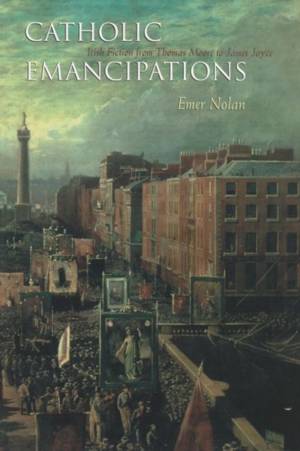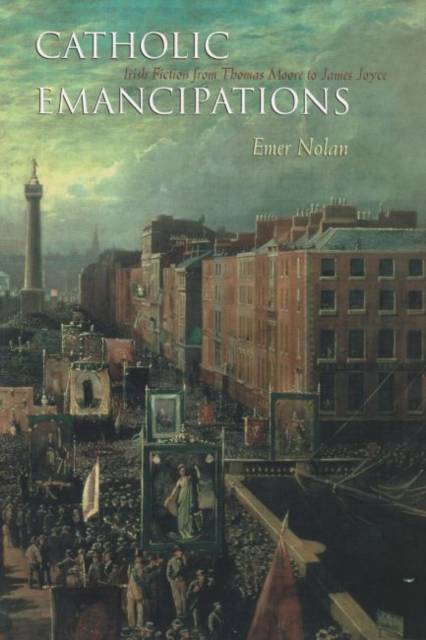
Bedankt voor het vertrouwen het afgelopen jaar! Om jou te bedanken bieden we GRATIS verzending (in België) aan op alles gedurende de hele maand januari.
- Afhalen na 1 uur in een winkel met voorraad
- In januari gratis thuislevering in België
- Ruim aanbod met 7 miljoen producten
Bedankt voor het vertrouwen het afgelopen jaar! Om jou te bedanken bieden we GRATIS verzending (in België) aan op alles gedurende de hele maand januari.
- Afhalen na 1 uur in een winkel met voorraad
- In januari gratis thuislevering in België
- Ruim aanbod met 7 miljoen producten
Zoeken
€ 67,95
+ 135 punten
Uitvoering
Omschrijving
This groundbreaking book explores the role nineteenth century Irish Catholic authors played in forging the creation of modern Irish literature. As such it offers a unique tour of Ireland's literary landscape, from early origins during the Catholic political resurgence of the 1820s to the transformative zenith wrought by James Joyce's Ulysses in 1922.
Emer Nolan observes that contemporary Irish literature is steeped in the ambitions and internal conflicts of a previously captive Irish Catholic culture that came into its own with the narrative art form. He revisits, with keen insights, the prescient and influential songs, poems, and prose of Thomas Moore. He also points out that Moore's wildly successful work helped create an audience for authors to come, i.e. John and Michael Banim, William Carleton and the popular novelists Gerald Griffin and Charles Kickham. An innovative aspect of this study is the author's exploration of the relationship between James Joyce and Irish culture and his nineteenth-century Irish Catholic predecessors and their political and national passions. It is, in effect, a telling look at the future history of Irish fiction.Specificaties
Betrokkenen
- Auteur(s):
- Uitgeverij:
Inhoud
- Aantal bladzijden:
- 264
- Taal:
- Engels
- Reeks:
Eigenschappen
- Productcode (EAN):
- 9780815631200
- Verschijningsdatum:
- 1/11/2007
- Uitvoering:
- Hardcover
- Formaat:
- Ongenaaid / garenloos gebonden
- Afmetingen:
- 161 mm x 236 mm
- Gewicht:
- 412 g

Alleen bij Standaard Boekhandel
+ 135 punten op je klantenkaart van Standaard Boekhandel
Beoordelingen
We publiceren alleen reviews die voldoen aan de voorwaarden voor reviews. Bekijk onze voorwaarden voor reviews.









